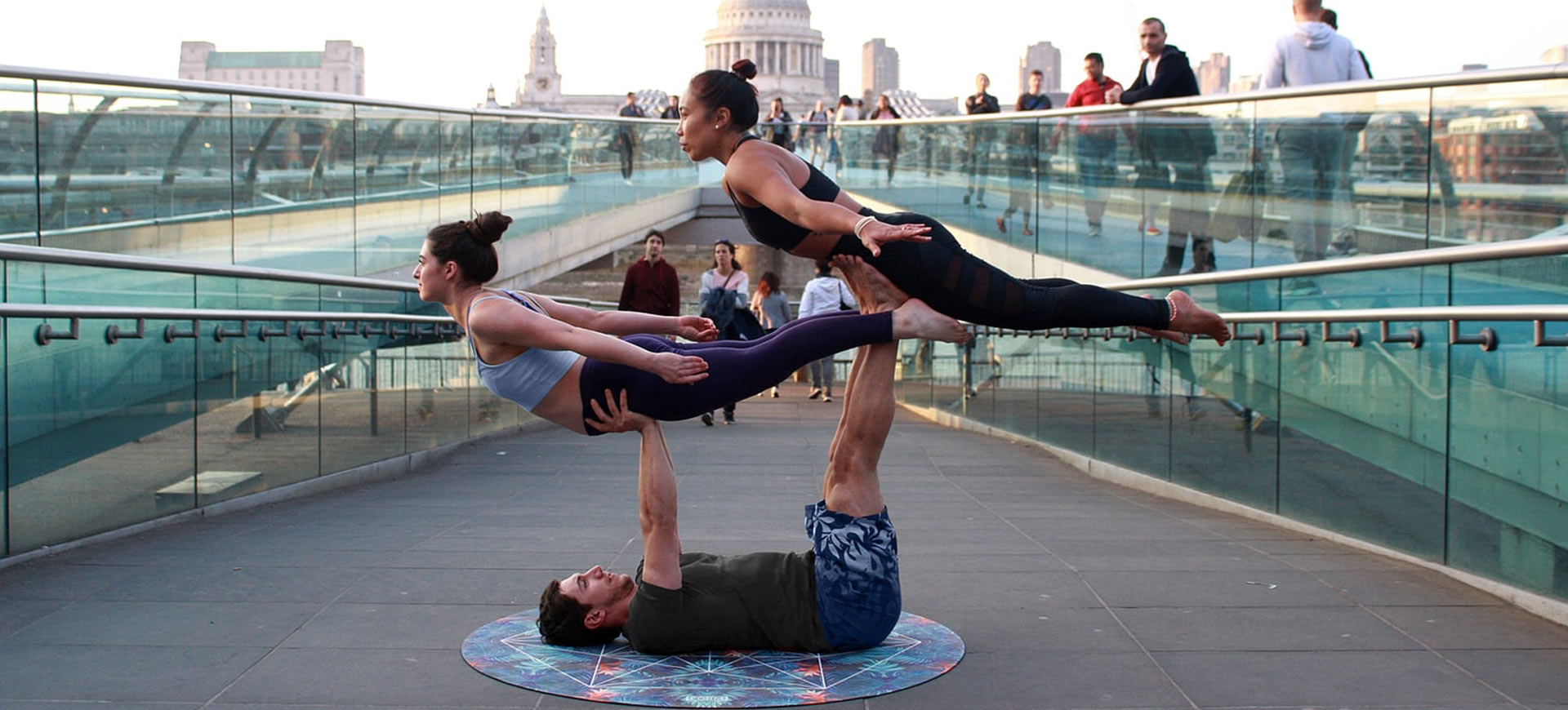
Collaboration Over Competition: Yoga Teacher’s Choice
Teaching yoga is no longer an unusual job. There are now hundreds of thousands of people sharing the practice around the world.
In December 2015 there were over 52,000 teachers registered with Yoga Alliance alone, and more than 15,000 new teachers are registering each year. That’s not including other Yoga Alliance bodies (like YA UK, and YA Europe), or other accrediting bodies such as the Independent Yoga Network or the BWY.
We can all play a part in creating a healthier working landscape by not buying into competition. It’s really hard — but we can decide to choose collaboration instead.
Actually, there are no reliable stats out there about the numbers of people regularly teaching. Just putting that hint out there in case anyone’s interested in launching a research study!
This explosion of new teachers has a number of important effects of yoga teaching as a profession. Let’s focus on one thing: competition.
An Explosion of New Yoga Teachers
As recently as ten years ago, yoga teachers were uncommon. Far fewer people had tried yoga and even less had a regular practice — and not everyone had a friend who was a yoga teacher. Now, especially if you live in a big city, you’re probably a bit unusual if you don’t have at least one or two yoga teacher friends.
This could be an amazing thing. Any dedicated yoga practitioner knows that doing this thing has a really positive impact on physical and mental health and overall wellbeing. Studies show that regular practice can help you feel calmer and more optimistic, improve your relationships, boost your brain power, and generally make life a bit better.
So it’s great that so many people are including yoga in their daily lives. But so many yoga teachers means the competition is fierce; look up almost any community space in a major city and you’ll find a few yoga teachers hiring it out for independent classes. Search for classes in small villages and towns far from those big cities, and you will find people teaching yoga. Some yoga studios receive hundreds of job applications from teachers every month — so many that it’s normal for a teacher not to even receive a reply to their application, let alone an audition or a job.
Pressure, Comparison, and Mental Health
And then there’s the internet: there’s no point in using #yoga on Instagram or Facebook because your post will disappear into an infinite vortex with millions of others. Yoga teachers are increasingly fighting for audiences.
There is pressure to share impressive pictures of an imaginarily perfect yogic lifestyle; to create your own unique yoga style, because of fear that being a good yoga teacher is simply not enough; to make yourself stand out through marketing and all that stuff you do outside of class, because otherwise you just won’t get people through the door.
But I don’t think the danger here lies in not getting people through the door. In all honesty, making a living as a yoga teacher is hard, and harder now than in decades gone by — for all kinds of reasons, from unstable economies and soaring living costs, to house prices and rent prices and yes; competition. It’s still possible though, and good, well trained yoga teachers who are committed to their work will bring people through the door.
The deeper danger is to our perception of ourselves, and of other people. Competition inherently involves comparing: by definition, it means striving to gain something by establishing superiority over others. So we compare ourselves to all those other yoga teachers, and decide whether we’re superior or inferior to them. This is yoga playing out in a society that values competition and rewards perceived superiority — and it’s not good for us.
Research shows that competitive behaviour, and striving to avoid being or feeling inferior, can cause depression, anxiety, and chronic stress. You end up feeling ‘less than’ all the time; you feel that you are not enough. And that’s not good for your teaching practice either. Students are drawn to teachers who radiate steadiness, honesty, and confidence in what they’re offering in class — and it’s very difficult to do that if you’re worried about not being as good or as popular as the teacher next door.

Be Different
We can all play a part in creating a healthier working landscape by not buying into competition. It’s really hard — but we can decide to choose collaboration instead.
But changing the way you see the other teachers around you can also change the way you see yourself.
It might feel counterintuitive when it’s so important to make your classes successful and build a solid client base. But changing the way you see the other teachers around you can also change the way you see yourself. In doing this, you begin to build a network of support around you, and combat the loneliness that often comes with a busy teaching schedule.
Reach out to that teacher in the room next door. Invite them for a coffee (or herbal tea). Talk to other teachers, not with the intention of getting more work, but just to share the challenges and happy moments that come with sharing this practice. When you start teaching in a new studio or space, get in touch with the other teachers who work in that space. Find out what they do, be interested, go to their classes, and tell them what you think is great about their teaching.
You might meet a teacher whose skill set fills in the gaps in yours
And from there, allow collaboration to arise; you might meet a teacher whose skill set fills in the gaps in yours, so you’re the perfect team for running workshops and retreats. You might find a mentor, or even become a mentor for someone else.
Whether or not you do end up working with other teachers, the important change is in your perception of them, and their perception of you. Our society, as it is right now, needs us to be competitive. The structures around us are built on competition and everyone trying to be better than others; everyone trying to be the best. But it’s not working; the structures that need us to compete, that demands winners and losers, are the same structures that are causing economic, social, and environmental destruction.
I know you’ve got to make a living. I do, too. But maybe we can do that without putting other people down, or feeling less than them ourselves. Welcome other teachers in to your life and let them be allies. Because at the end of the day, you have a lot in common; and friends are much more valuable than rivals.






